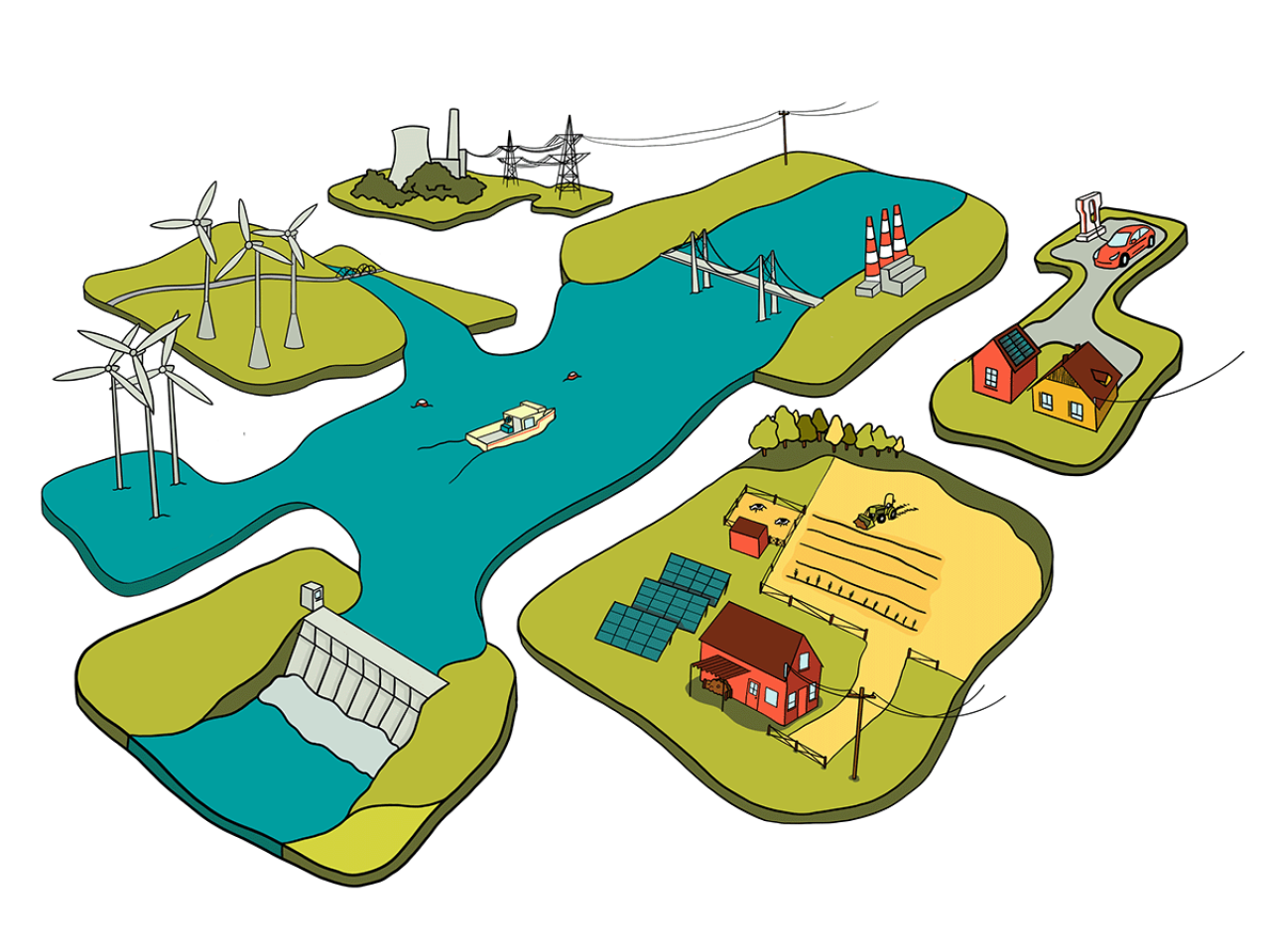The ACES model was created as a tool Atlantic Canadians can use to help answer “what if” scenario questions regarding the future long-term development of our energy system.
The model covers all four Atlantic provinces and six greenhouse gas-emitting sectors: electricity, buildings, transportation, industry, agriculture, and waste. The ACES model provides least-cost solutions that satisfy the energy demand for each time period included in the model. ACES model users can customize and analyze possible scenarios to test outcomes that are best suited for their needs, while also tracking emissions and economic key performance indicators.
The ACES model uses the open-source modelling framework, Temoa (Tools for Energy Model Optimization Analysis). With the objective of optimizing capacity and minimizing the cost of energy supply, Temoa acts as the “engine” of ACES to produce scenario results based on Atlantic Canada-specific values and parameters. Using an open-source model like ACES provides researchers, policymakers, industry, and NGOs with the insight needed to effectively reduce emissions and beneficially participate in the energy system transition.

“What if the cost of investing in an electric vehicle goes down? Or what if advancements in wind turbine technology allow for more energy to be generated from existing wind resources?”
The model can help users to identify technological gaps that could prevent our region from achieving net-zero emissions. This makes it possible to cultivate informed research and development strategies and to identify opportunities for Atlantic Canada to innovate and share knowledge with regions that are also striving for a low-carbon future.
Insights that can be gained from using ACES can also allow model users to see beyond the short-term operation of the energy system. Industry representatives can use ACES to better understand impacts of federal and provincial policies, anticipate sectoral growth opportunities, and plan for the future. Policy-makers can apply insights from model outputs to guide strategic thinking and to better position local economies to meet climate change goals and to reap economic benefits from the clean energy transition.
Why Net Zero Atlantic created the ACES Model
At Net Zero Atlantic, our mandate includes assessing the impact different types of energy technologies have on the natural and social environment. Our goal is to manage research in an objective way and to put the results into the public domain to help with discussion. We believe an energy system model like the ACES model will enable us to identify areas requiring more study and help to shape our research priorities moving forward.